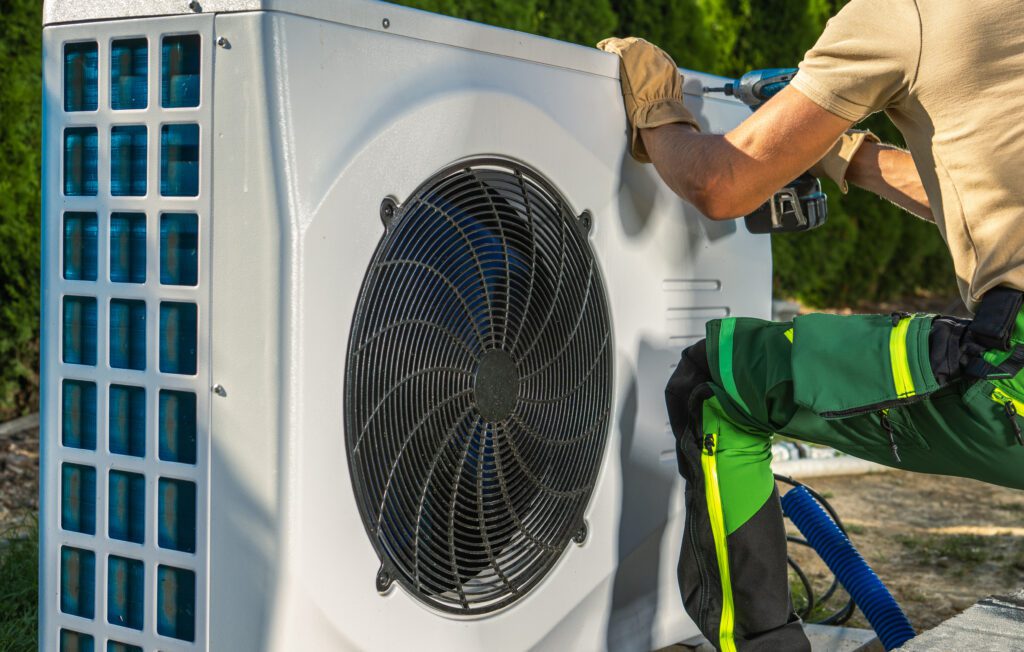Experiencing an HVAC emergency can be stressful, especially during extreme weather. Knowing the common causes can help you prevent these emergencies and ensure your system runs smoothly. In this FAQ, we’ll explore what often goes wrong with HVAC systems in Martinsburg.
Lack of Regular Maintenance
Skipping regular HVAC maintenance can lead to unexpected breakdowns. Dust and debris can accumulate, causing parts to fail. Regular check-ups help catch small issues before they become emergencies.
Many homeowners in Martinsburg underestimate the importance of consistent maintenance for their HVAC systems. Regular tune-ups are crucial because they not only enhance the performance and efficiency of your system but also extend its lifespan. Issues such as clogged filters, worn-out belts, or reduced refrigerant levels can be identified during these routine checks, preventing them from turning into emergencies down the road.
Regular maintenance acts as an insurance policy against major repairs. By routinely cleaning and inspecting critical components of your HVAC system, you reduce the wear and tear that could lead to sudden malfunctions. It’s much more cost-effective to schedule a simple maintenance session than to deal with the financial burden of a full-scale emergency repair.
Refrigerant Leaks
Refrigerant leaks are common and can cause your HVAC system to lose efficiency or stop working altogether. Detecting leaks early on can prevent damage to your compressor and system breakdowns.
Refrigerant is vital for the cooling function of your HVAC system. When leaks occur, it not only reduces the system’s cooling capacity but also leads to increased energy consumption, driving your utility bills up. By conducting regular inspections for refrigerant levels, any leaks can be detected and repaired early, keeping your system efficient and saving you money.
A comprehensive inspection by a professional can identify the early signs of refrigerant leaks, such as ice buildup on the evaporator coil or a hissing sound near the indoor unit. Professional services like ours ensure that your system operates smoothly and securely by addressing these issues promptly.
Electrical Issues
Faulty wiring or electrical problems can lead to HVAC emergencies. This might cause your system to short-circuit or fail during critical times, such as during high usage in the summer or winter.
Electrical malfunctions can be a silent disruptor. What starts as a simple loose connection or a frayed wire can escalate into a significant problem if left unattended. This is why it’s crucial to have regular electrical inspections for your HVAC system, ensuring all connections are secure and components are functioning as intended.
Even minor electrical issues should be addressed immediately. Ignoring them not only risks the integrity of your HVAC system but also poses potential safety hazards, such as fires or electrical shock.
Sensor Problems
If sensors aren’t working correctly, they might cause irregular cycling or other operational problems. Ensuring sensors are properly calibrated and functioning can help avoid such issues.
HVAC systems rely heavily on sensors to regulate internal environments efficiently. Sensors measure the ambient temperature and make the necessary adjustments to heating or cooling levels. When these sensors malfunction, your HVAC system might short cycle or fail to maintain the desired temperature, leading to inefficiencies and potential discomfort.
Regular calibration and testing of these sensors are essential. A professional service can provide thorough diagnostics to ensure your sensors are accurate and responsive.
Clogged Air Filters
Clogged filters can force your system to work harder, leading to breakdowns. Changing filters regularly ensures proper airflow and extends the life of your HVAC system.
Air filters are the first line of defense for your HVAC system, trapping dust, pollen, and other airborne particles. When these filters become clogged, they restrict airflow, forcing the system to work harder and less efficiently. Over time, this increased strain can lead to overheating and mechanical failures.
Changing air filters on a regular schedule not only maintains efficient airflow but also enhances indoor air quality, providing a healthier living environment.
Stay Ahead of HVAC Emergencies
Understanding the most common causes of HVAC emergencies allows you to take preventative measures and know when to call in the professionals. Regular maintenance and being attentive to your system’s needs are key in avoiding unexpected breakdowns.



